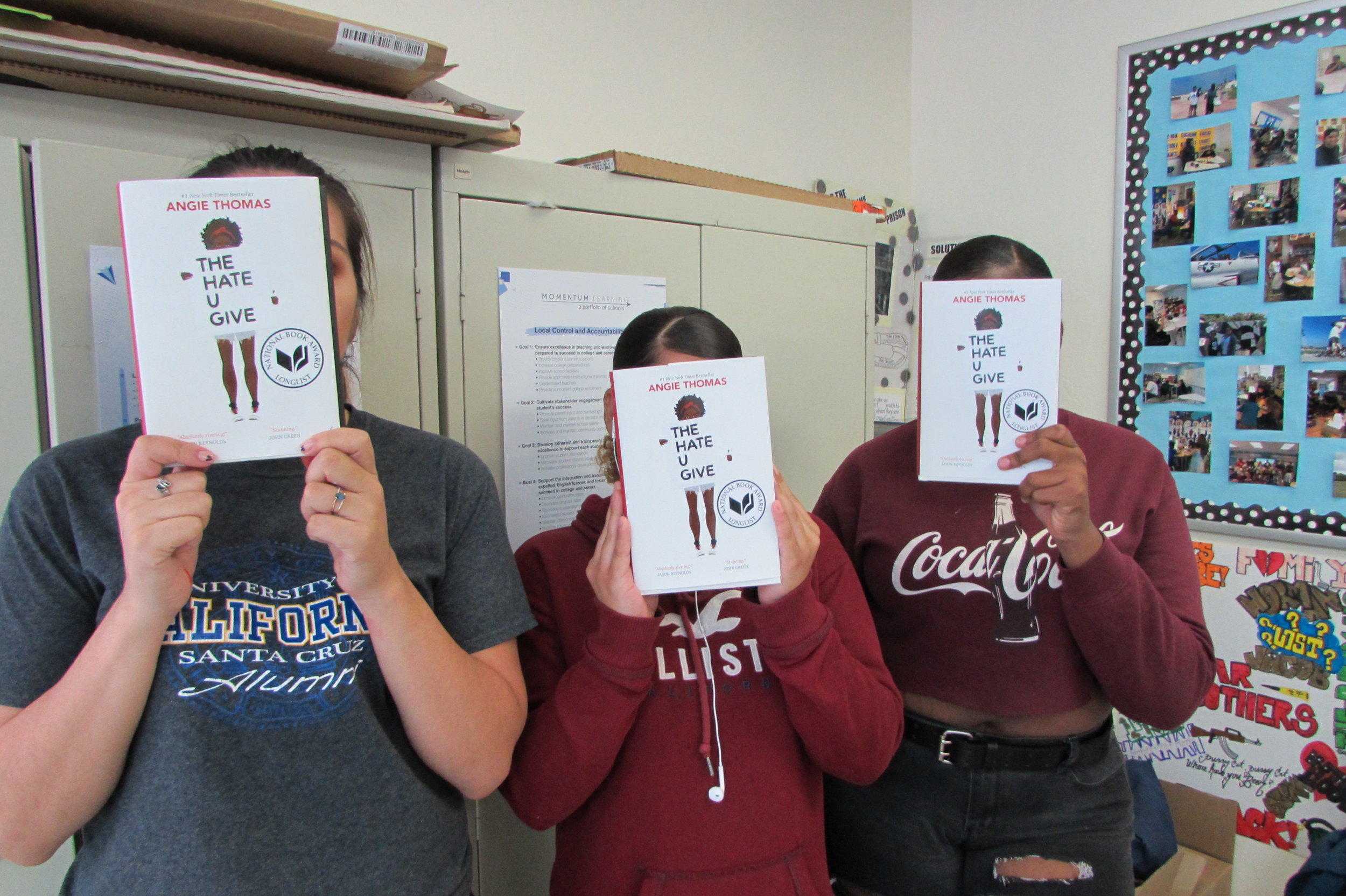By Jennifer Van Pelt
An image of three of our Adolescent Book Group students holding up copies of the YA novel "The Hate U Give" to cover their faces.
Reading is imperative to learning and development, but do you know what is actually happening to your brain when you read? A recent article by NPR outlines a study specifically conducted on children around age 4 in which they test activity in the brain caused by reading by presenting various story formats to the participants while they were inside an fMRI machine.
The story formats presented to the children were: audio only, illustrated pages of a storybook with an accompanying voice over, and an animated cartoon. For the audio only format, it appeared as though the children were struggling to understand and connect the dots. For the animated cartoon, it was quite the opposite: all the work was done for the children, so they were left trying to comprehend the information given to them, exercising their brain minimally. Lastly, for the illustrated pages with audio voice over, this seemed to be the most beneficial to the children. They were able to hear the words and fill in the blanks with the illustrations for the most comprehensive understanding while exercising their brain networks. This also allows those with different learning styles to benefit from both visual and aural methods. The article did make an important note though -- although the illustrated book with audio voice over was the most beneficial in the study, it still pales in comparison to sitting down with family and reading a book together.
As children get older and they start reading for themselves, they tend to sound-out words based on the individual letters. When they do this, they are forging more brain connections to help them remember the word in the future. As written in an article on theconversation.com, there is a particular area in the brain where words are “stored”, recognized more so as a symbol, so once a word is learned it is more easily recognizable and is added to their arsenal of words to use in the future.
What about for adults that are learning to read in the later stages of life? There have been studies that show the actual process of learning to read and write rewires one’s brain. A study was conducted that focused on adults around age 30 who were taught to read and write over the course of six months and included a control group who were not taught anything new. For the adults who spent six months learning to read and write, there were increases in brain activity in the cortex, the “learning” portion of the brain, as well as the thalamus and brainstem -- areas of the brain that are not generally related to learning or literacy but instead are generally used for more basic processes such as senses, movement, and attention.
These studies indicate that your brain on reading is a very involved process, one that shows the benefits of reading down to the very core of our being: it heightens activity in key areas of the brain and helps you comprehend stories and concepts more fully.
At Words Alive, we understand the benefits reading can have on all aspects of your life and at every age -- if you would like to get involved and help others experience the benefits, visit our main page here!
Sources:
http://theconversation.com/explainer-how-the-brain-changes-when-we-learn-to-read-76783

